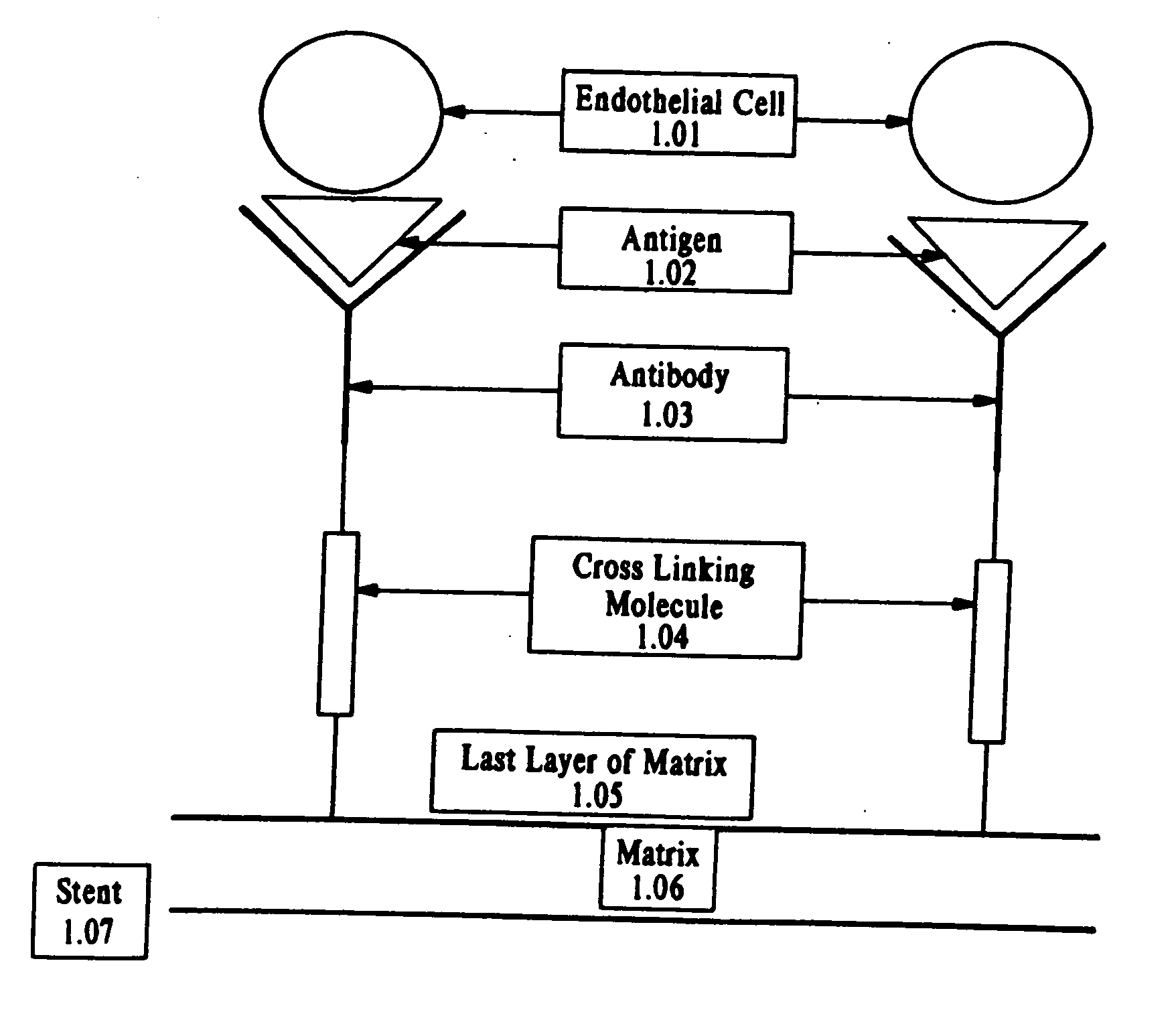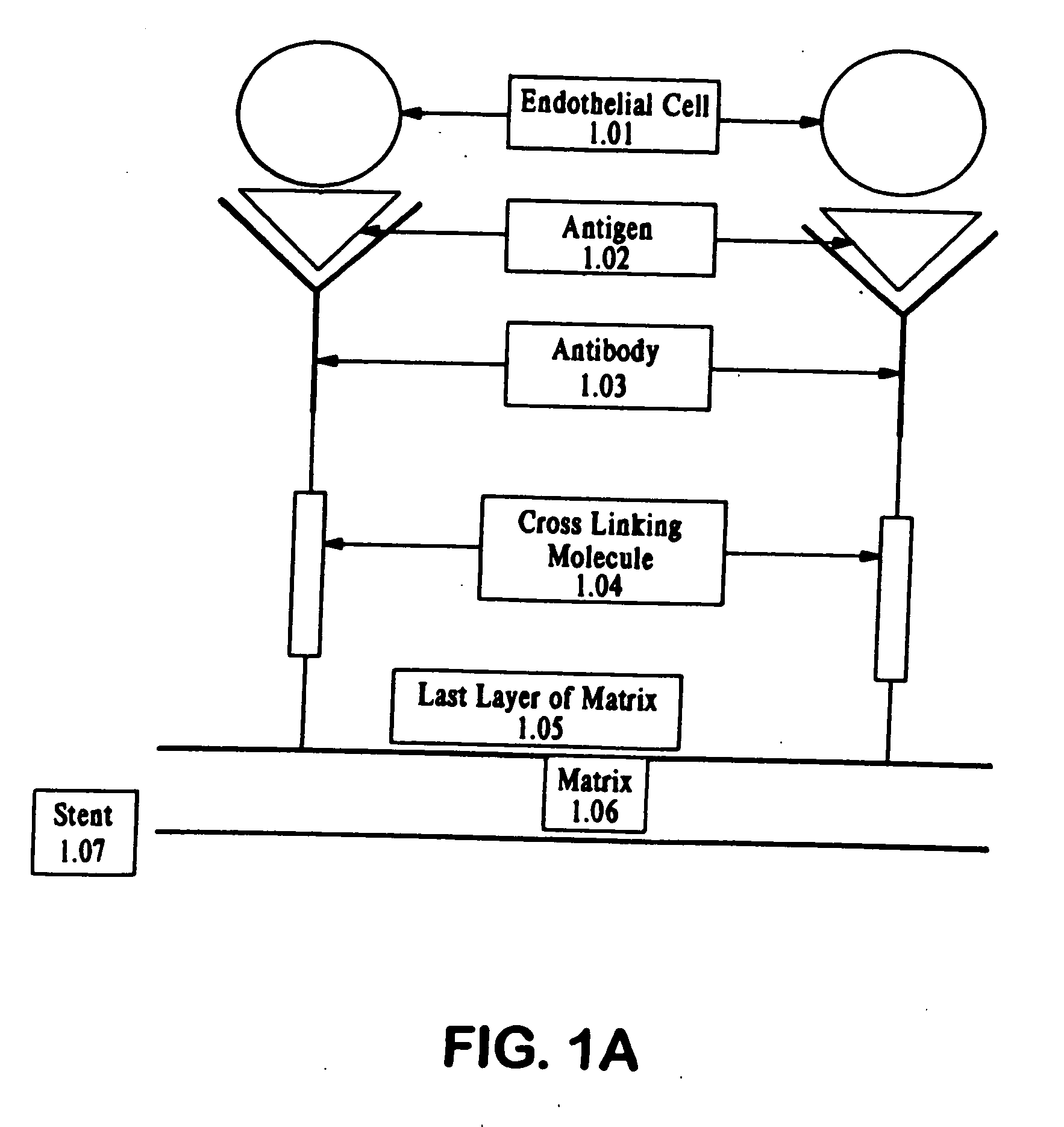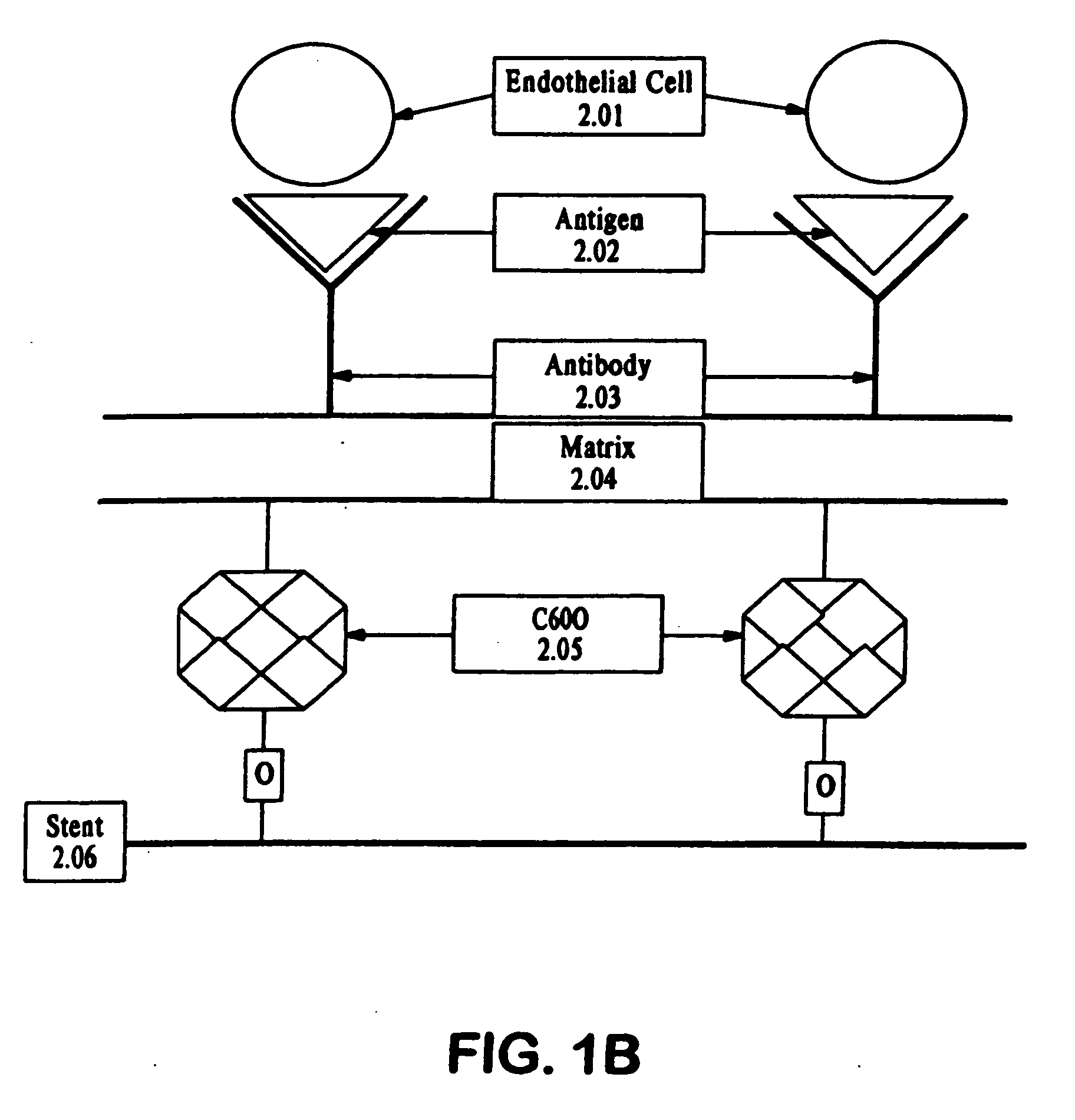Medical device with coating that promotes endothelial cell adherence and differentiation
a technology of endothelial cells and medical devices, applied in the field of medical devices, can solve the problems of permanent opening of the affected coronary artery, affecting the actual incidence of the disease in the population, and ischemic damage to the tissues supplied by the artery, so as to improve the prognosis of patients, prevent restnosis, and inhibit intimal hyperplasia
- Summary
- Abstract
- Description
- Claims
- Application Information
AI Technical Summary
Benefits of technology
Problems solved by technology
Method used
Image
Examples
experimental examples
[0104] This invention is illustrated in the experimental details section which follows. These sections set forth below the understanding of the invention, but are not intended to, and should not be construed to, limit in any way the invention as set forth in the claims which follow thereafter.
example 1
Endothelial Progenitor Cell Phenotyping
[0105] Endothelial Progenitor Cells (EPC) were isolated either by CD34+Magnetic Bead Isolation (Dynal Biotech) or enriched medium isolation as described recently (Asahara T, Murohara T, Sullivan A, et al. Isolation of putative progenitor endothelial cells for angiogenesis. Science 1997;275:964-7). Briefly, peripheral venous blood was taken from healthy male volunteers and the mononuclear cell fraction was isolated by density gradient centrifugation, and the cells were plated on human fibronectin coated culture slides (Becton Dickinson) in EC basal medium-2 (EBM-2) (Clonetics) supplemented with 5% fetal bovine serum, human VEGF-A, human fibroblast growth factor-2, human epidermal growth factor, insulin-like growth factor-1, and ascorbic acid. EPCs were grown up to seven days with culture media changes every 48 hours. The results of these experiments are shown in FIGS. 2A and 2B. FIGS. 2A and 2B show that the anti-CD34 isolated cell appear more...
example 2
[0108] Endothelial Cell Capture by anti-CD34 coated Stainless Steel Disks:
[0109] Human Umbilical Vein Endothelial Cells (HUVEC) (American Type Culture Collection) are grown in endothelial cell growth medium for the duration of the experiments. Cells are incubated with CMDX and gelatin coated samples with or without bound antibody on their surface or bare stainless steel (SST) samples. After incubation, the growth medium is removed and the samples are washed twice in PBS. Cells are fixed in 2% paraformaldehyde (PFA) for 10 minutes and washed three times, 10 minutes each wash, in PBS, to ensure all the fixing agent is removed. Each sample is incubated with blocking solution for 30 minutes at room temperature, to block all non-specific binding. The samples are washed once with PBS and the exposed to 1:100 dilution of VEGFR-2 antibody and incubated overnight. The samples are subsequently washed three times with PBS to ensure all primary antibody has been removed. FITC-conjugated second...
PUM
| Property | Measurement | Unit |
|---|---|---|
| thickness | aaaaa | aaaaa |
| concentration | aaaaa | aaaaa |
| concentration | aaaaa | aaaaa |
Abstract
Description
Claims
Application Information
 Login to View More
Login to View More - R&D
- Intellectual Property
- Life Sciences
- Materials
- Tech Scout
- Unparalleled Data Quality
- Higher Quality Content
- 60% Fewer Hallucinations
Browse by: Latest US Patents, China's latest patents, Technical Efficacy Thesaurus, Application Domain, Technology Topic, Popular Technical Reports.
© 2025 PatSnap. All rights reserved.Legal|Privacy policy|Modern Slavery Act Transparency Statement|Sitemap|About US| Contact US: help@patsnap.com



